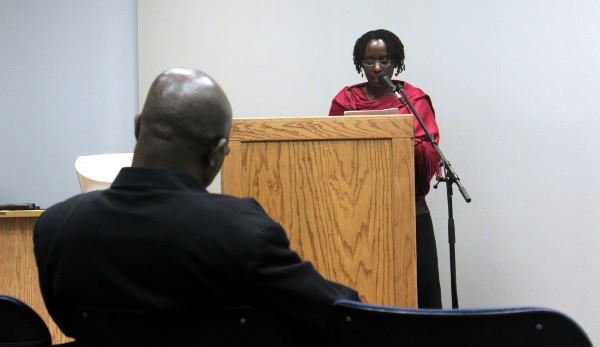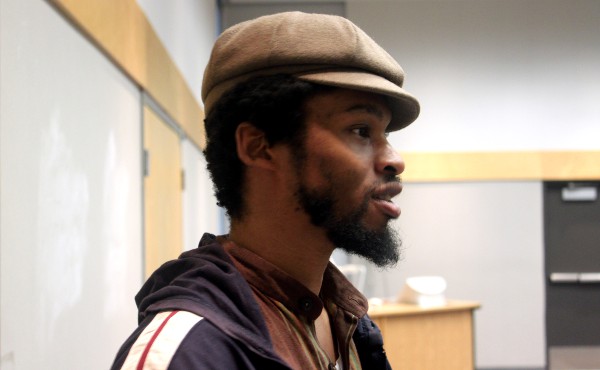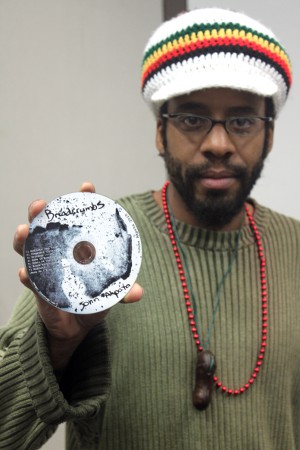Sociology instructor talks about the future of black history
February 16, 2010 by Jacob Zinn · Leave a Comment

Juliane Bitek reads several of her poems at Kwantlen's Black History Month Confab. (Jacob Zinn photo)
On Feb. 8, Kwantlen’s sociology department held its annual Black History Month Confab in the conference centre of the Surrey campus.
This year, the department collected donations for Haiti earthquake relief and raised $220, bringing the classes total to over $3,000.
The well-attended event featured four film screenings on African history and performances by spoken word poets Juliane Bitek, Scruffmouth and John Akpata.
Dr. Charles Quist-Adade, a sociology instructor, has led the discussion since he moved to Kwantlen four years ago. This year’s theme, “The Danger of One Story or the Power of Multiple Stories,” is a combination of two ideas in black history.
“The first part of the theme, ‘The Danger of One Story,’ is actually the title of a talk that was given by the Nigerian author named Chimamanda Adichie,” said Quist-Adade. Adichie’s talk notes that the western media gives only a one-sided rendition of the story of African history.
Quist-Adade added the second part of the theme and explained that multiple stories provide knowledge and empowerment.
The purpose of the discussion was to celebrate and reflect on black achievements, challenges and shortcomings. This year’s confab had a good turnout, but Quist-Adade doesn’t feel the current generation has a strong grasp on black history, which makes it all the more important for youth to attend.
Beyond the recognition of Nelson Mandela, Rosa Parks and Martin Luther King, Jr., he feels many aren’t aware of lesser-known, historical black figures.
“The contribution of people of African descent to the global stock of knowledge, to world civilization, has been over the years marginalized, at best,” said Quist-Adade, citing advancements in science, social sciences and engineering. “And ignored at worst.”
He feels the biggest issue within black communities is having a media outlet to broadcast their message of African heritage.
“We don’t have the power, we don’t have the voice. [...] When you have the voice, then you can push your identity.”
With the U.S. presidency of Barack Obama, Quist-Adade considers his election to be “the second American Revolution.” But at the same time, he’s realistic about the changes Obama can make.
“While we’re happy he’s elected, our hopes should not be too high,” he said. “We should temper our optimism with pragmatism and realize that he cannot solve the problems of the people of African descent alone and quickly.”
Spoken Word Poetry

Scruffmouth, whose name is derived from his facial hair, has done spoken word poetry since 2004. (Jacob Zinn photo)
[audio:http://www.kwantlenchronicle.ca/audio/Scruffmouth2.mp3]
“Pan-Africanism is Dead” by Scruffmouth

John Akpata is pictured with his spoken word CD titled "Breadcrumbs." He is doing shows in the Lower Mainland and on Vancouver Island throughout Black History Month. (Jacob Zinn photo)
[audio:http://www.kwantlenchronicle.ca/audio/John_Akpata2.mp3]
“To Be or Not to Be” by John Akpata


